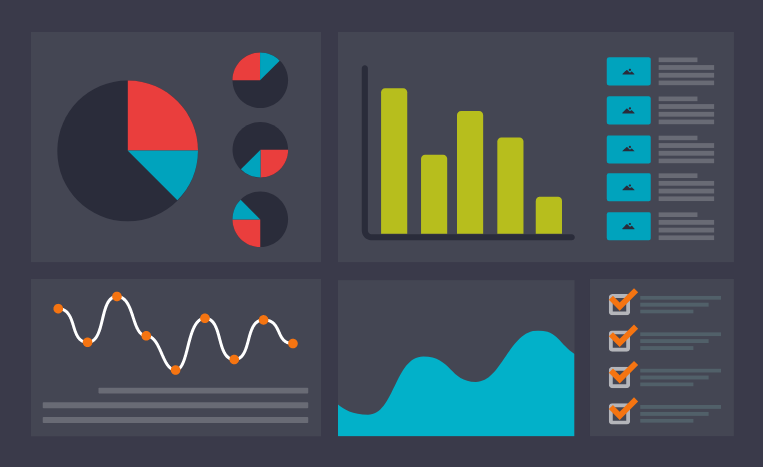The Opportunities in Analytics Strategy
06.13.22
It takes faith to hire a marketing agency for your business — but that decision doesn’t equate to blind trust. Your partnership with an agency should be informed by results and led by clear communication that goes beyond a statement of work. Paradigm uses an analytics strategy process to provide you with crucial insight into your consumers and your platforms. Whether your business comes to us for an SEO strategy or organic social posts, we utilize diverse datasets to create smart strategies, identify new opportunities and track your success.
Understanding Consumer Behavior
Many businesses understand that data shows what is happening on a website, such as page visits or contact form entries within a given time period. What many fail to consider is that data reports translate into a larger story. Every data point is used to reveal why consumers act the way they do — the right metrics in combination show what attracts them, what sends them away and what their ultimate needs may be.
An overwhelming majority of businesses cite confusion with traditional data tools as they provide a large expanse of numbers, but offer no real explanation as to what they mean for their business and their consumer base. Having a trusted marketing professional in your corner who can interpret the data and explain how it tangibly impacts your brand and the people who interact with your business goals is vital in today’s data-driven world.
An analytics strategy allows the experts at Paradigm to provide valuable insight to you — further improving your data literacy and consumer understanding over time.
Setting Your Marketing Goals
To set marketing goals, you must first analyze your overall achievements by pooling data from multiple sources such as Google Analytics, Google Ads, social media platforms such as Facebook or LinkedIn and a keyword analysis platform like Semrush. To the untrained eye, the compiled numbers may seem random but they interact to convey your content’s success rate in various areas of your business initiatives. Our reports pinpoint the areas worth improving, the successful tactics to continue and the specific goals to analyze in future reports.
An analytics strategy may center around specific, set goals such as boosting brand awareness, improving blog readership or increasing domain authority. Datasets can be selected and grouped according to your goal, allowing us to analyze if we are successful or not. For example, if you were striving to improve your domain authority, we would likely analyze metrics such as top traffic-providing keywords, keyword rankings, organic traffic, backlinks and authority score. Instead of looking at the specifics of one metric, this tactic puts the related metrics of a specific goal under one lens — taking multiple datasets into consideration to see how they impact the focus topic.
Making Data-Informed Decisions
Your analytics strategy allows us to track the performance of your marketing initiatives and inform the next best move — whether that is increasing efforts in a specific area or discontinuing ineffective practices. For example, your data may reveal that your web traffic spiked on one specific day, which happened to be at a time you posted something engaging on social media. This data would tell us to consider making similar posts more often to funnel further traffic to your website based on your consumer’s interactions.
Data considerations help you stop efforts that are failing and swap them out for the ones that show promise. Yet, a common misconception is that we are informed by a singular source. While Google Analytics is useful, it’s only one piece to the puzzle. Keyword analytics via sources like Semrush can show why a particular webpage is succeeding. In addition, there’s value in using behavior analytics tools — traditional data supplemented by tools such as mouse tracking via Hotjar and customer feedback surveys can help us piece together a dynamic report of your performance and empower you to make decisions that are uplifting for your brand and tailored to your consumers.
Take a Step Toward Data-Driven Opportunities
An analytics strategy gives you an edge in the realm of consumer understanding and overall business growth. Paradigm utilizes reports to not only create change for your business in real time, but also adjust and customize your data points to connect to your overall goals. Together, we work to transform your data into actionable results, favorable outcomes and lasting data understanding. Contact our team to start your content strategy and develop a plan for analytics strategy today.


